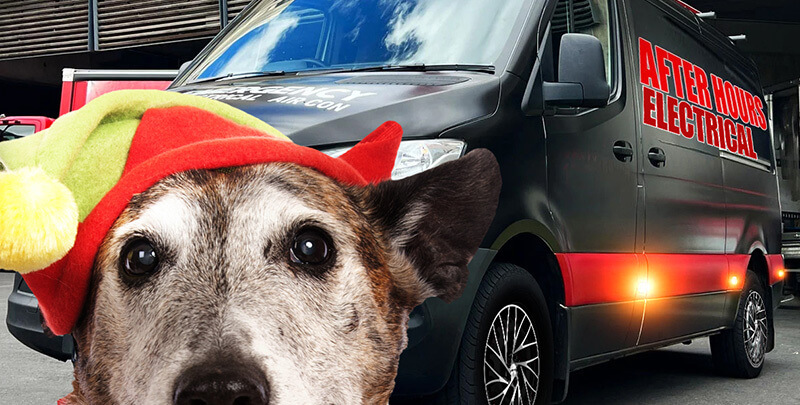How To Stop Smoke Alarm Beeping

There's little else that quite ruins a great night's sleep like the high-pitched, incessant sound of a smoke alarm chirping or beeping. No matter what is causing it, knowing how to stop smoke alarm beeping can save your ears and sanity.
These devices are bonafide lifesavers, a must-have that alerts your household to the presence of smoke. That being said, it doesn’t make the chirping noise any less maddening. We get it.
Today, we’re looking at some easy, practical fixes and tips to keep your smoke detectors quiet and working properly. That way, you can get back to living in a house that doesn’t sound like it’s suddenly under siege.
Identify the Type of Smoke Alarm You Have
Before you can fix that irritating beeping noise, knowing what kind of smoke alarm you’re dealing with will go a long way towards resolving the problem. Most homes have either battery-operated smoke alarms, hardwired alarms connected to the mains power, or carbon monoxide alarms. Some models even combine all three functions.
Battery-operated alarms are easier to maintain but more likely to chirp when the battery power gets low. Hardwired alarms usually include backup batteries, so they’ll still work during a power outage, but they can be problematic should something go wrong with the circuit breaker.
Knowing your alarm type helps you diagnose whether the issue is a low battery warning, an electrical problem, or something else entirely. Check the back label or your user manual for details.

Common Reasons Why a Smoke Alarm Keeps Beeping
If your smoke alarm keeps beeping, there’s usually a reason. Yes, it’s annoying, but it’s often fixable. That relentless chirping noise might be your alarm’s way of telling you it needs a bit of attention. The following are some of the most common reasons why it’s likely to happen:
- Low battery warning: This is by far the most frequent cause of smoke alarm beeping, especially with battery-operated alarms.
- Old battery or poor battery connection: This typically indicates that the battery terminals have corroded or there’s a loose fit in the battery compartment.
- Dust or debris in the sensor chamber: You can clear this by using a vacuum cleaner with a soft brush attachment.
- Power outage or mains issue: Hard-wired alarms can play up if there’s a fault in the home’s electric grid or circuit breaker.
- High humidity or steam: Both can trigger a false alarm, particularly near bathrooms or kitchens when you’re cooking on the stove.
- The alarm is past its use-by date: If your alarm is over 10 years old, it probably needs replacing.
Knowing how to stop smoke alarm beeping starts with understanding what’s causing the issue in the first place. Get to the bottom of that, and you can stop your alarm from impersonating a dying robot at 2 a.m.
The Difference Between Smoke Alarms and Smoke Detectors
Many of us use the terms ‘smoke alarms’ and ‘smoke detectors’ interchangeably, because they serve similar purposes. It’s understandable. However, they’re actually not one and the same.
A smoke alarm is a singular, all-in-one unit that detects smoke and sounds an alarm. It’s the device you’ll most commonly find in homes.
On the other hand, a smoke detector is usually part of a larger fire alarm system. Commercial buildings and apartment complexes will typically have these installed. It detects smoke but relies on a central control panel to trigger the alarm.
Knowing the difference matters when buying replacements, reading instructions in a manual about how to stop smoke alarm beeping, or arranging professional installation. For home safety, you’ll most likely be dealing with single alarm units that include both functions.
Quick Fixes You Can Try Now
You don’t always need a professional to deal with a beeping smoke alarm. Some quick fixes can silence it and get things working properly again. Before you make a call to an expert in the middle of the night – a potentially expensive call at that – try these quick fixes first:
- Swap out the existing battery with a brand new one. Just make sure it fits snugly in the battery compartment or battery drawer.
- Reset the unit by pressing and holding the test button for at least 15 seconds.
- Vacuum the sensing chamber gently using a soft brush attachment to remove loose dust or insects.
- Take out the battery and press the test button again. This will tell you if you have any residual charge.
- Inspect the power cable and connections on hardwired alarms.
- Check the manufacture date of your smoke alarm. You’ll need to replace the entire device if it’s over 10 years old.
These simple fixes often resolve common problems with battery-operated and mains-powered smoke alarms.

When to Replace the Entire Unit
Now, you’ll almost certainly encounter some situations where your smoke alarm will be uncooperative with an almost impressive degree of stubbornness. No matter how many batteries you change, how much dust you clear out of it, or even how many “how to stop smoke alarm beeping” blog articles you read. If the beeping noise won’t stop—even after trying all the quick fixes—it may be time to replace the entire unit.
Most smoke alarms typically last 10 years, so check the manufacture date on the back. Other common red flags include persistent issues like multiple false alarms, failure to respond to the test button, or signs of wear in the battery terminals, sensor chamber, or mounting bracket. Older models may lack carbon monoxide detection or modern features like battery backup.
In the end, replacing an outdated alarm ensures you’ve got a reliable, safe, and quiet setup that actually does its job.
Using a Licensed Electrician for Installations and Repairs
If your hardwired smoke alarm keeps beeping despite all your heroic efforts, it’s time to call in a licensed electrician. This is in no way a DIY job.
Hardwired alarms connect directly to your home’s electric grid, and tampering with the power cable or circuit breaker without proper knowledge can cause more harm than good. It’s also illegal in Australia for an unlicensed person to do so.
A licensed electrician can safely inspect the system, identify electrical problems, and install or replace powered smoke alarms the right way. They’ll also make sure any battery backup is set up correctly, preventing issues during a power outage.
Professional installation ensures your alarms meet legal safety standards and work reliably. At the end of the day, when it comes to smoke detection, guesswork just doesn’t cut it.
Preventative Maintenance Tips
Keeping your smoke alarms in good condition doesn’t take much effort, but it can save you from sleepless nights and unnecessary false alarms. Regular maintenance ensures your devices are working properly and ready when needed. Here are a few simple habits to follow:
- Test each smoke alarm monthly using the test button. Fire & Rescue NSW recommends doing it for at least five seconds at a time, once a month.
- Replace the battery in battery-operated smoke alarms at least once a year. For smoke alarms with a sealed 10-year lithium battery, you’ll need to replace the entire unit when the battery dies.
- Every six months (or as per manufacturer specifications), use a vacuum cleaner with a soft brush attachment to clean the sensing chamber and remove loose dust.
- Avoid installing alarms near kitchens or bathrooms where high humidity and steam can trigger a chirping noise.
- Check the date of manufacture to know when your smoke alarm needs replacing.
A little upkeep goes a long way when it comes to avoiding that dreaded low battery chirp and keeping your alarms ready to detect smoke.
Peace and Quiet (and Safety): Finally Stop That Beeping
Knowing how to stop smoke alarm beeping at random hours shouldn’t feel like solving a mystery novel. Whatever the cause, the right approach can spare you hours of irritation.
Regular checks, proper battery replacement, and cleaning with a vacuum cleaner can prevent most problems before they start. When things get technical, particularly with hardwired alarms, bring in a licensed electrician to stay on the safe side. And don’t forget, if your alarm is more than 10 years old, it probably needs to be replaced.
Stay safe, sleep well, and may your home remain blissfully beep-free.
Please note: Thanks for reading our blog “How To Stop Smoke Alarm Beeping”. This information is provided for advice purposes only. Regulations differ from state to state, so please consult your local authorities or an industry professional before proceeding with any work. See our Terms & Conditions here.
